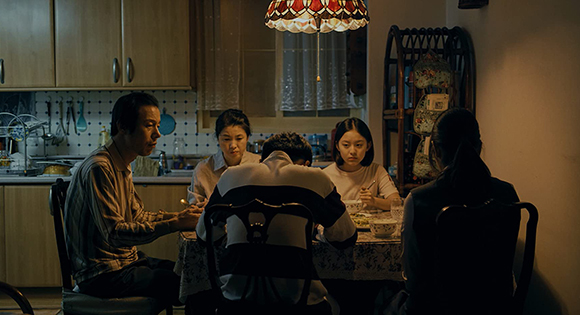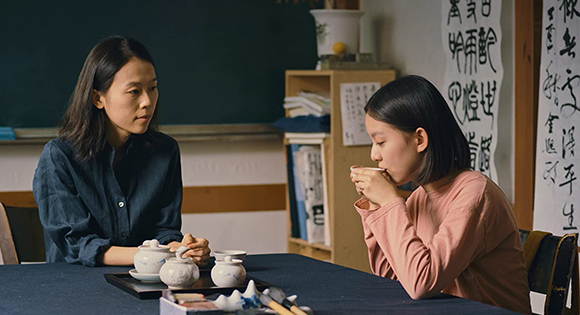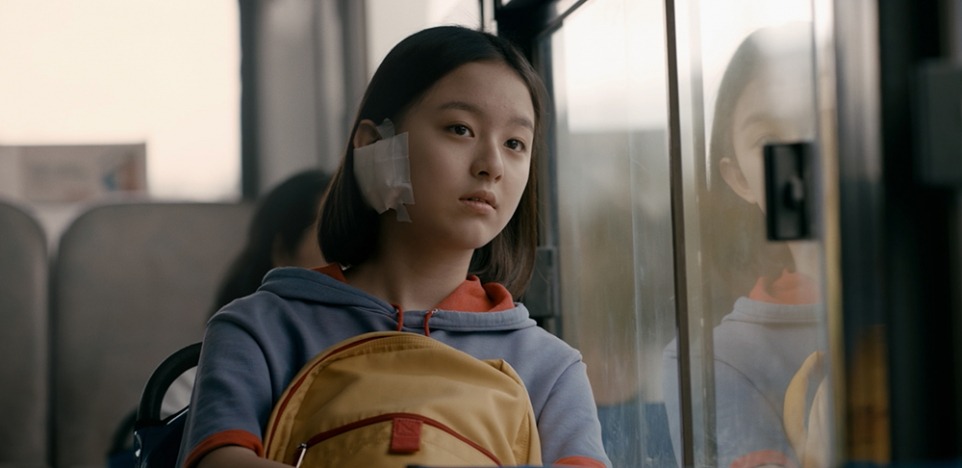House of Hummingbird can be screened through the Kino Marquee Virtual Theaters, with proceeds shared with independent theaters. Find a theater here.
For boys and girls, the rite of passage in adolescence is like a bridge that takes them on a mysterious journey into the wider world. Very few youth cross that bridge without suffering a setback, learning a painful lesson, experiencing a loss, or feeling hammered by dire circumstances beyond their control. It's no wonder that in most cultures, the middle- and high-school years are remembered as difficult and lonely times.
The goal of this rite of passage is to enable youth to discover who they are and aspire to be as they develop self-respect and the capacity for renewal. This is the process conveyed by Korean writer and director Bora Kim in the immensely touching drama House of Hummingbird. The title refers to 14-year-old Eun-hee, who moves through life like the small bird seeking sweetness wherever she can find it. She lives in Seoul in 1994, a time of changes.
At home, she is ignored by her parents and beaten up by her older brother. Her older sister and her boyfriend are nice to her, but basically Eun-hee is on her own. When she discovers a lump on her neck, she has to take herself to the clinic for a biopsy.

Eun-hee does have a friend, but their relationship goes through ups and downs. A new girl suggests a special connection but dumps her, explaining it's a new semester. The only one who seems to show any real interest in her is a substitute teacher at the school where she is learning Chinese. In her first class, Miss Youngli asks some good questions: "How many people do you know? How many of those people do you understand? Among all the people you know, how many really understand what's going on inside you?" We sense that Eun-hee's universe is still too small.

She has questions too. She wants to know when her life will begin to "shine." She wants to be a cartoonist and plans to make a character based upon her teacher. She wants her readers to find strength through her stories when they, like her, are lonely. She would do well to pass on the spiritual practice she learns from Miss Youngli.
One night they are sitting together, and Eun-hee asks if her teacher ever has moments when she hates herself.
Miss Youngli: "Yes. Often. Very often."
Eun-hee: "Even though you go to such a good college?"
Miss Youngli: "It takes some time to learn to like yourself."
"When I don't like yourself, I just try to look within at just the way it is. So, this is how I feel. I guess I can't love myself right now . . .
"When you're tired and sad, [she holds up her two hands] try looking at your fingers. Then one by one, move them around. It'll feel very mysterious. You feel like you can't do anything, but you can move your fingers."
These words prove to be empowering, helping a lonely girl discover that the world is indeed fascinating and beautiful. This moment and more to come turn House of Hummingbird into one of the most spiritually literate films of the year.
